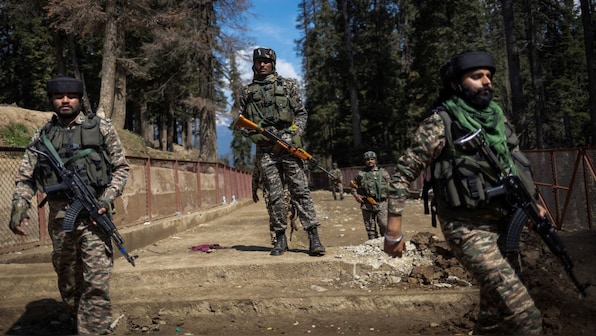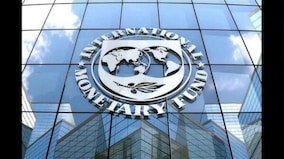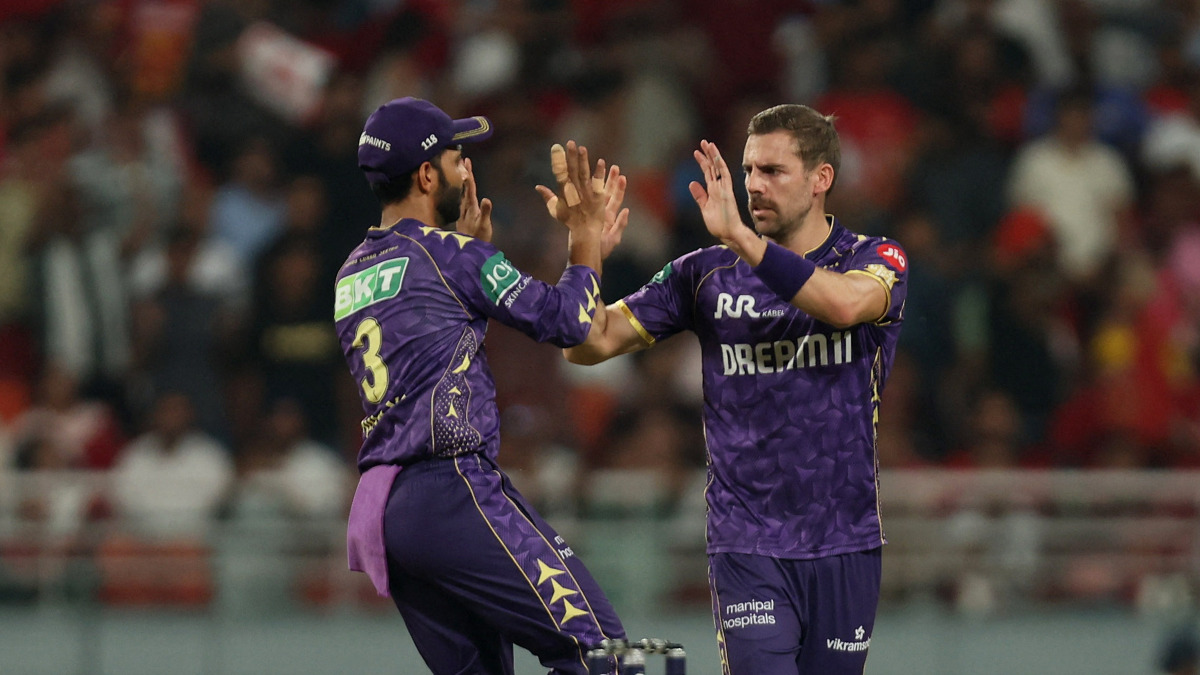No one can forget how Prime Minister Narendra Modi had famously advised Russian President Vladimir Putin: “This is not an era of war, but it is one of dialogue and diplomacy, and we all must do what we can to stop the bloodshed and human suffering.”
However, following the Pahalgam terror attack, a narrative is being pushed that India should launch a full-scale military attack on Pakistan.
Analysts who are indulging in war-mongering seem to have mistaken PM Modi’s thinking and intelligence and his mastery over the art of finding solutions to the most complex political problems.
PM Modi had also told Putin that a solution to the war in Ukraine “cannot be found on the battlefield”. I have no doubt that PM Modi is fully aware that a solution to the problems between India and Pakistan also cannot be found on the battlefield.
In this context, let me state that the recent statements made by PM Modi are being misinterpreted as a declaration or even an intention to wage a full-scale war against Pakistan.
Following the Pahalgam attack, PM Modi had said on April 22 that ’those behind this heinous act will be brought to justice…they will not be spared! Their evil agenda will never succeed. India’s resolve to fight terrorism is unshakeable, and it will get even stronger'.
Two days later, on April 24, addressing his first public rally in Madhubani after the deadly Pahalgam attack, PM Modi said, “Today, from the soil of Bihar, I say this to the whole world: India will identify, trace and punish every terrorist and their backers. We will pursue them to the ends of the Earth.”
These statements are not tantamount to an intent to attack Pakistan and wage war against it. They only spell out the intention to ‘punish every terrorist and their backers’. Those who think that waging war is the only way it can be done are mistaken. In fact, such a thesis only supports the narrative of Pakistani politicians who are trying to distract attention from the terror attack in Pahalgam.
For example, on Monday, April 28, Pakistan’s defence minister Khawaja Muhammad Asif said that a military incursion by neighbouring India was imminent in the aftermath of the deadly militant attack on tourists in Pahalgam. He did not go into further details on his reasons for thinking an incursion was imminent; instead, he said, “We have reinforced our forces because it is something which is imminent now. So in that situation some strategic decisions have to be taken, so those decisions have been taken.”
Two days later, April 30, Pakistan’s Information Minister Attaullah Tarar said that his country has “credible intelligence” that India intends to launch a military strike within the next 24 to 36 hours. Well, more than 36 hours have elapsed, but has that military strike happened? Tarar said that India intends to use the Pahalgam attack as a “false pretext” for a strike and that “any such military adventurism by India would be responded to assuredly and decisively”.
Above all, in a telephone conversation on April 30 with US Secretary of State Marco Rubio, Pakistan’s Prime Minister Shehbaz Sharif sought the US’ help in urging India to “dial down its rhetoric” on the deadly terrorist attack in Pahalgam. He also accused India of “escalatory and provocative behaviour”.
The fact is that the Shehbaz Sharif government is raising the bogey of an Indian attack in order to cause fear and panic within Pakistan and outside it, thus diverting attention from India’s allegations of Pakistan’s involvement in the Pahalgam terror attack. This Pakistani ploy is having its desired effect. Not surprisingly, US Vice President JD Vance said, “Our hope here is that India responds to this terrorist attack in a way that doesn’t lead to a broader regional conflict.”
Another important statement by PM Modi is also being misinterpreted in the media. Recently, on April 29, PM Modi affirmed that it is India’s “national resolve to deal a crushing blow to terrorism”. He also said that the Indian armed forces have his full confidence and “complete operational freedom to decide on the mode, targets and timing” of India’s response in the aftermath of last week’s terror attack at Pahalgam. He said that the mode, targets, and timing of the response are left to the security forces.
This has been interpreted as a green light to the armed forces to start a war against Pakistan, but it is not so. Operational freedom generally refers to the ability to act and make decisions without undue constraints or interference. It encompasses the freedom to execute a plan, adapt to changing circumstances, and make choices that align with the organisation’s vision, without being hampered by rigid processes, staffing shortages, or other external factors.
Does ‘operational freedom’ give the armed forces the right to start a war against Pakistan? Certainly not. That would be a major political decision which would go way beyond ‘operational freedom’. The consequences of an all-out war between two nuclear-armed countries would be costly.
In any case, PM Modi would not tell Putin that ‘it is not an era of war’ and then go on to launch a war against Pakistan. That would be rather inconsistent. The last thing that PM Modi can be accused of is being inconsistent. In fact, he is remarkably consistent in his views and pronouncements.
The declaration of intent to punish the terrorists is both necessary and reassuring in terms of public anxiety in India. There is a huge deployment of the armed forces, BSF, CRPF and J&K Police all across Jammu and Kashmir. People in India are concerned as to how such a terrorist attack on tourists in Pahalgam could take place despite this heavy deployment. Clearly, there was a security lapse which must be investigated.
Again, the Pahalgam attackers, who came from across the Line of Control, clearly got some logistical and other forms of support from local sleeper cells, for otherwise these terrorists could not have carried out the terrorist attack with such impunity and precision.
The armed forces have ‘operational freedom’ and don’t need any clearance from anyone to get to the bottom of the security lapse and the support which the terrorists from across the border got from Pakistan’s sleeper cells within India.
PM Modi’s statements are a message that he wants to take action on all such issues. Internal security has to be tightened, and ISI sleeper cells have to be eradicated in order to prevent such attacks in the future. The revamping of the National Security Advisory Board which took place on May 1 is a step taken by PM Modi to address these challenges.
PM Modi has also stated that he intends to punish the backers of the terrorist attacks against India. Clearly, the Pakistani establishment, especially the army and its intelligence wing ISI, are the main backers of all such attacks. They need to be made to pay the price. Some steps have already been announced by the Modi government, and many more are under consideration. The decision to put the Indus Waters Treaty in abeyance is one such step. The impact on Pakistan’s tottering economy will be deadly. The Shehbaz Sharif government is aware of how this can hurt Pakistan and has termed it an act of war.
Downsizing the Pakistan High Commission and declaring the military, air and naval attachés, along with their support staff, as ‘persona non grata’ is another step. However, this action may not be enough. It is necessary to shut down the Pakistan High Commission while also withdrawing our diplomats and High Commission staff from Pakistan, thereby breaking off diplomatic ties with that rogue neighbour.
Why should we have diplomatic ties with such a neighbour whose avowed intention is to ‘bleed India by a thousand cuts’? In any case, the Pakistan High Commission is a den of spies and plays a vital role in nurturing the ISI’s sleeper cells in India. Therefore, it is in our nation’s interest that it should be shut down.
Above all, there is an old saying that ‘my enemy’s enemy is my friend’. Indian armed forces and intelligence agencies should devise modalities to assist separatist militant outfits in Pakistan, such as the Tehreek-e-Taliban Pakistan (TTP), and the Baloch insurgents.
Using geopolitical factors to India’s advantage is the need of the hour. The differences between Kabul and Islamabad are increasing by the day. The current Afghan government and previous ones do not recognise the Durand Line and have rejected it, viewing it as a colonial imposition. They argue that the line was drawn unfairly and that it cuts through tribal areas and communities, dividing the Pashtun people.
The Tehrik-e-Taliban Pakistan (TTP) receives growing support from Afghanistan’s Taliban rulers to conduct cross-border attacks in Pakistan. TTP continues to operate at a significant scale in Afghanistan and is able to conduct terrorist operations into Pakistan from there, often utilising Afghans. India should render the fullest financial and weapon support to TTP, which can be crucial in its war against the Pakistan army.
The Baloch nationalist movement, including the Balochistan Liberation Front (BLF) and Baloch Liberation Army (BLA), has a history of demanding greater rights and even secession from Pakistan. Baloch militants have been involved in attacks on Pakistani security forces and development projects, including those related to the China-Pakistan Economic Corridor (CPEC). India has denied any official support for the BLF or any other separatist groups in Pakistan. The time has come to completely revamp India’s policy in this regard.
The Pakistani military establishment has been consistent in implementing its avowed policy that it will bleed India by a thousand cuts. India’s policy should be to break up Pakistan by a thousand blows! To inflict these blows, India doesn’t have to attack Pakistan and wage war against it, which could be a costly option.India has to use all its diplomatic skills. If India assists the Baloch insurgency and the TTP, they will be grateful to India and will also carry out their own objective of striking a thousand blows at the Pakistan army. Breaking up Pakistan by weakening it from within would be the most desirable policy option for India.
In conclusion, all this hype about India’s impending attack on Pakistan is misleading. I am confident that PM Modi will fulfil his promise that ‘India will identify, trace and punish every terrorist and their backers’. He will do so in a manner that is effective and enduring. Let us trust him and not try to drive the narrative ourselves.
The writer is a retired Indian diplomat and had previously served as Consul General in New York. Views expressed in the above piece are personal and solely those of the author. They do not necessarily reflect Firstpost’s views.


)
)
)
)
)
)
)
)
)